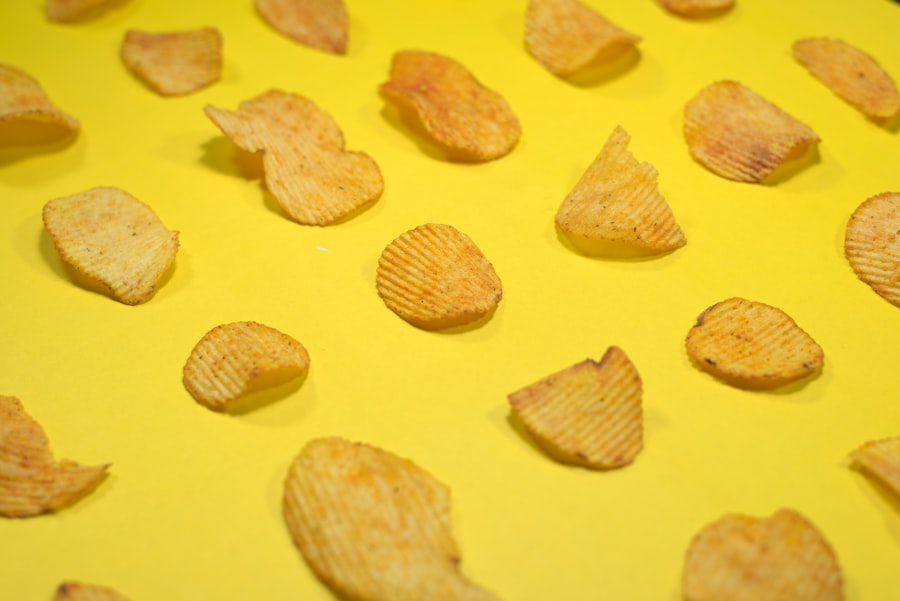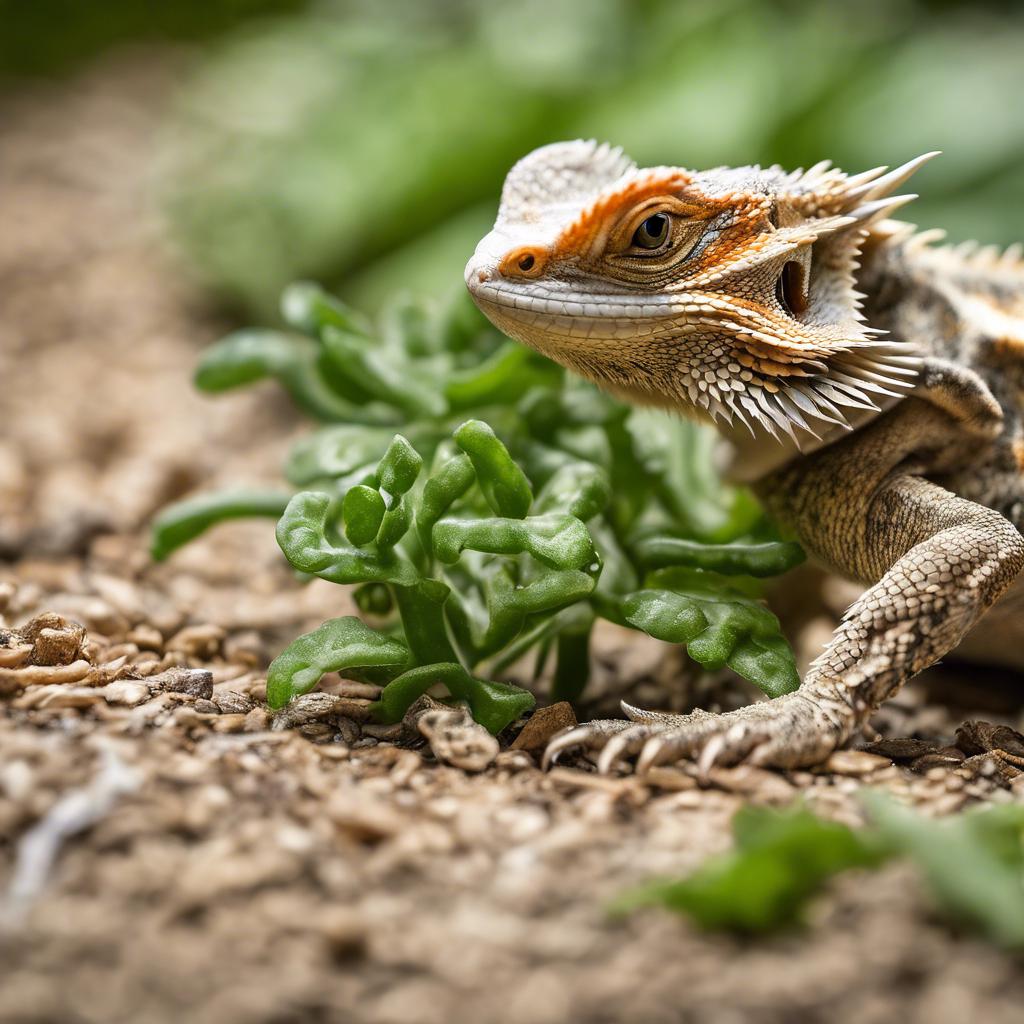Bearded dragons are popular pets known for their unique appearance and docile nature. As responsible pet owners, it is important to provide them with a balanced diet that meets their nutritional needs. One question that often arises is whether bearded dragons can eat arugula. In this article, we will explore the nutritional value of arugula for bearded dragons, how much arugula they should eat, and how to properly prepare it for them.
Key Takeaways
- Bearded dragons can eat arugula, but it should not be the main part of their diet.
- Arugula is high in calcium, vitamin A, and fiber, making it a nutritious addition to a bearded dragon's diet.
- Bearded dragons should only eat arugula in moderation, as too much can lead to health issues such as diarrhea and kidney problems.
- Arugula should be washed thoroughly and chopped into small pieces before feeding to bearded dragons.
- Other vegetables that can be fed to bearded dragons include collard greens, kale, and squash, but a balanced diet should also include protein sources such as insects and small amounts of fruit.
Nutritional Value of Arugula for Bearded Dragons
Arugula, also known as rocket or salad rocket, is a leafy green vegetable that belongs to the Brassicaceae family. It is packed with essential vitamins and minerals that can benefit bearded dragons. Arugula is an excellent source of vitamin A, which is crucial for maintaining healthy skin, eyesight, and immune function in bearded dragons. It also contains vitamin C, which helps boost their immune system and aids in the absorption of iron.
In addition to vitamins, arugula is rich in minerals such as calcium, potassium, and magnesium. Calcium is essential for strong bones and teeth in bearded dragons, while potassium helps regulate their blood pressure and maintain proper muscle function. Magnesium plays a role in enzyme function and energy production.
How Much Arugula Should Bearded Dragons Eat?
While arugula can provide valuable nutrients to bearded dragons, it should not make up the majority of their diet. It is important to offer a variety of vegetables to ensure they receive a balanced diet. Arugula can be included as part of their vegetable rotation, but it should not exceed 10% of their overall diet.
A good rule of thumb is to offer arugula once or twice a week as a treat or supplement to their main diet of leafy greens and insects. This will help prevent any potential health issues that may arise from overconsumption of arugula or a lack of variety in their diet.
Preparing Arugula for Bearded Dragons
Before feeding arugula to your bearded dragon, it is important to properly wash and prepare it. This will help remove any dirt, pesticides, or other harmful chemicals that may be present on the leaves. Start by rinsing the arugula under cold water to remove any loose dirt or debris. Then, fill a bowl with water and add a small amount of vinegar or a vegetable wash solution. Soak the arugula in the water for a few minutes to ensure thorough cleaning. Rinse it again under cold water to remove any remaining residue.
It is also important to choose organic arugula whenever possible to avoid exposure to pesticides and other harmful chemicals. Organic produce is grown without the use of synthetic fertilizers or pesticides, making it a safer option for your bearded dragon.
Other Vegetables That Can Be Fed to Bearded Dragons
While arugula can be included in a bearded dragon's diet, it is important to offer a variety of vegetables to ensure they receive all the necessary nutrients. Some other vegetables that can be fed to bearded dragons include:
– Collard greens: High in calcium and vitamin A, collard greens are an excellent addition to a bearded dragon's diet.
– Mustard greens: Another leafy green vegetable that is rich in vitamins and minerals, including vitamin A and calcium.
– Kale: A nutrient-dense vegetable that provides vitamins A, C, and K, as well as calcium and potassium.
– Bell peppers: These colorful vegetables are a good source of vitamin C and provide variety in texture and flavor.
– Squash: Butternut squash and acorn squash are both high in vitamin A and provide a different texture for your bearded dragon to enjoy.
By offering a variety of vegetables, you can ensure that your bearded dragon receives a well-rounded diet that meets their nutritional needs.
Bearded Dragon Care: Providing a Balanced Diet

Providing a balanced diet is crucial for the overall health and well-being of your bearded dragon. In addition to vegetables, their diet should also include a variety of insects, such as crickets, mealworms, and dubia roaches. These insects provide essential protein and other nutrients that are necessary for their growth and development.
It is important to offer a variety of vegetables and insects to ensure that your bearded dragon receives all the necessary nutrients. This will help prevent nutritional deficiencies and promote optimal health. Additionally, it is important to provide fresh water for your bearded dragon at all times.
Health Issues Associated with Feeding Arugula to Bearded Dragons
While arugula can provide valuable nutrients to bearded dragons, there are some potential health issues that can arise from feeding it in excess. One concern is the high oxalate content in arugula, which can bind to calcium and prevent its absorption. This can lead to calcium deficiency, which can cause metabolic bone disease in bearded dragons.
To prevent this issue, it is important to offer arugula in moderation and ensure that your bearded dragon's diet includes a variety of other calcium-rich foods. Calcium supplements may also be necessary to ensure they receive adequate amounts of this essential mineral.
Signs of Nutritional Deficiency in Bearded Dragons
It is important to monitor your bearded dragon for signs of nutritional deficiency. Some common signs include:
– Soft or deformed bones
– Difficulty shedding
– Lethargy or weakness
– Loss of appetite
– Weight loss
– Swollen joints
If you notice any of these signs, it is important to consult with a veterinarian who specializes in reptile care. They can help determine the cause of the deficiency and provide guidance on how to address it through diet and supplementation.
Common Health Problems in Bearded Dragons and How to Prevent Them
In addition to nutritional deficiencies, there are other common health problems that can affect bearded dragons. Some of these include respiratory infections, parasites, and metabolic bone disease. These issues can often be prevented through proper diet and care.
To prevent respiratory infections, it is important to provide a clean and well-ventilated enclosure for your bearded dragon. Avoid exposing them to drafts or extreme temperature changes. Regularly clean their enclosure and provide a proper temperature gradient to ensure their respiratory health.
Parasites can be prevented through regular fecal exams and proper hygiene practices. Avoid feeding your bearded dragon wild-caught insects, as they may carry parasites. Always wash your hands before and after handling your bearded dragon or cleaning their enclosure.
Metabolic bone disease can be prevented by providing a calcium-rich diet, proper UVB lighting, and a suitable enclosure with appropriate temperature gradients. Regular veterinary check-ups are also important to monitor your bearded dragon's overall health and detect any potential issues early on.
Including Arugula in a Bearded Dragon's Diet
In conclusion, arugula can be included as part of a balanced diet for bearded dragons. It is rich in essential vitamins and minerals that can benefit their overall health. However, it should not make up the majority of their diet and should be offered in moderation.
It is important to provide a variety of vegetables and insects to ensure that your bearded dragon receives all the necessary nutrients. This will help prevent nutritional deficiencies and promote optimal health. Regular veterinary check-ups are also important to monitor their overall health and address any potential issues early on.
By providing a balanced diet and proper care, you can ensure that your bearded dragon lives a long, healthy, and happy life.
If you're wondering whether bearded dragons can have arugula as part of their diet, you'll find some valuable insights in a recent article on Reptile Wizard's blog. This informative piece explores the nutritional benefits and potential risks of feeding arugula to bearded dragons. To learn more about this topic, check out the article here. Additionally, if you have any specific questions or concerns about your bearded dragon's health, don't hesitate to reach out to the experts at Reptile Wizard through their contact page here.
FAQs
What is arugula?
Arugula is a leafy green vegetable that is also known as rocket or roquette. It has a slightly bitter and peppery taste and is commonly used in salads and as a garnish.
Can bearded dragons eat arugula?
Yes, bearded dragons can eat arugula in moderation. It is a good source of vitamins and minerals, but should not be the main component of their diet.
What are the nutritional benefits of arugula for bearded dragons?
Arugula is a good source of calcium, vitamin A, vitamin C, and iron, which are all important for the health of bearded dragons.
How much arugula should bearded dragons eat?
Arugula should only make up a small portion of a bearded dragon's diet, around 10-20%. It should be fed in moderation and not as a staple food.
Can arugula be harmful to bearded dragons?
Arugula is generally safe for bearded dragons to eat, but it should be washed thoroughly to remove any pesticides or chemicals. Overfeeding arugula can also lead to digestive issues and diarrhea.

